![]()
Mon, Dec 19, 2011 | By Richard Weitz
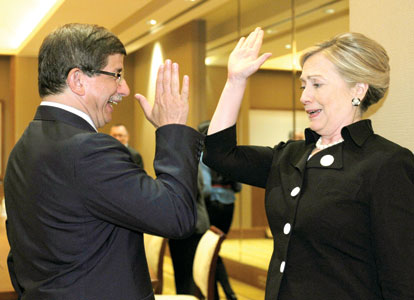
Secretary of State Hillary Clinton gives Turkey's Foreign Minister Ahmet Davutoglu a high five on the sidelines of the third meeting of the International contact group on Libya on June 9, 2011. (Susan Walsh, AFP/Getty Images)
Turkish-US Relations in 2011 and Beyond: There May be Trouble Ahead
This article was first published in the Turkey Analyst, vol. 4 no. 24 (www.turkeyanalyst.org), a biweekly publication of the Central Asia-Caucasus Institute & Silk Road Studies Program Joint Center. © Central Asia-Caucasus Institute & Silk Road Studies Program Joint Center, 2011.
The year 2011 saw a “regression toward the mean” in Turkey’s relation with the United States. 2010 had the deadly Israeli flotilla raid, the misfired Iranian nuclear negotiations, and the WikiLeaks’ revelations about the negative views held by some American diplomats regarding Turkey’s leaders who were described as dangerous extremists, megalomaniacal, and corrupt. The Turkey-U.S relationship has rebounded nicely in 2011, with Ankara and Washington collaborating on a range of issues. But danger signs abound beneath the surface, suggesting that 2012 and beyond might not be as rosy.
Background
Since the Justice and Development Party (AKP) came to power in 2002, it has had a rocky relationship with Washington and its allies. The conflict over the Iraq War soured bilateral relations for much of the Bush administration, and popular hostility to the United States among Turks rose to record heights. But for the last few years, Turkey and the United States have cooperated effectively in Iraq. Washington did not object to this year’s Turkish military incursion into northern Iraq to fight PKK guerrillas. U.S. diplomats apparently see Turkey as Washington’s ally in the coming struggle for influence with Iran in post-U.S. occupied Iraq and other Middle Eastern countries.
Turkey abandoned its high-profile efforts to mediate the Iranian nuclear dispute after its May 2010 enriched uranium swap deal was rejected by the U.S. administration, and it has decided to host a missile defense radar designed to protect Europe from Iranian missiles.
Turkey continues to contribute about 2,000 troops as part of the NATO-led International Security Assistance Force in Afghanistan; Ankara extended its leadership of the Kabul regional command for at least another year. Turkey’s training of the Afghan army, along with its regional diplomatic initiatives aimed at reconciling Afghanistan and Pakistan as well as its economic reconstruction projects, are appreciated in Washington.
The United States strongly backs the desire of the AKP government to enter the European Union. However, the latest EU reports on Turkey’s progress in meeting its accession requirements describe Turkey as still needing to address several lagging areas, especially concerning media and other civil freedoms.
Turkey remains a major European security player, but its strained ties with the EU, combined with the complex relationship between NATO and EU, presents alliance management problems for all concerned. The most immediate problem is the paralyzing effects of the Turkey-Cyprus dispute on institutional cooperation between NATO and the EU. Turkey is a member of NATO but not the EU, whereas Cyprus belongs to the EU but not NATO. The two countries have used the consensus rules of each organization to hobble one organization from cooperating with the other on important security issues.
Turkish officials have waged a protracted battle to secure some influence on EU security decisions as well as to compel Greek Cypriots to reach a political settlement with the Turkish Cypriots. In pursuit of these ends, they have proved willing to block EU-NATO cooperation on important security issues. These mutual antagonisms have constrained NATO-EU cooperation in general, and disrupted the joint NATO-EU security missions in Afghanistan, Kosovo, and in the Gulf of Aden in particular. Prime Minister Tayyip Erdoğan has threatened to end all cooperation with the EU when Cyprus assumes its rotating presidency in July, creating new problems for the United States and its European allies.
Meanwhile, Erdoğan has now ceased to assail Israel for its alleged nuclear weapons arsenal, which had been another sore point with the Obama White House eager to focus attention on Iran’s nuclear program. Both administrations have skillfully managed to compartmentalize their differences over Israel, with Turkish officials even pretending that the early warning missile defense radar they are deploying cannot help defend Israel. But violent clashes between Israeli forces and the Palestinians could renew tensions.
Implications
The United States and other pro-Western governments would welcome Turkey’s keeping Iranian influence within limited bounds in Iraq, but Ankara will try to avoid being seen as a U.S. regional proxy seeking to marginalize Iraq’s Shiite majority. Turkish officials have sought to cultivate ties with Iraq’s Shiites and Kurds. They appreciate that an explicitly sectarian approach would be counterproductive because Iraqi Shiites are not automatic proxies of Tehran, although they might move in that direction if faced with another direct Sunni-Shiite clash between Iraqi factions and their foreign sponsors.
The Turkish government has generally adhered to the mandatory sanctions adopted by the UN Security Council against Iran, but Turkish firms have pursued any economic opportunities not explicitly prohibited. Turkey, along with China, is now becoming one of the few leading trading partners of Iran whose economic ties with Tehran are increasing. This growth could lead to increased tensions with the United States, which has been seeking to isolate Iran economically.
Several factors also constrain Turkey’s engagement in Afghanistan. These include a concern about becoming bogged down in an unwinnable war, alienation for U.S. policies in Afghanistan and Iraq, and fears of antagonizing fellow Muslims by appearing to join a Western (Christian) crusade. These concerns, manifested in low popular support within Turkey for the country’s limited involvement in the war, have made the Turkish government cautious about its level of involvement.
Turkish officials argue that their country has distinct advantages in mediating between the Afghan government and its Pakistani-backed Taliban opposition. They cite their historically good relations with both countries, co-religiosity, and a lack of local proxies or other means and incentives to interfere in either country’s internal affairs.
But in its mediation efforts, Turkey has encountered many of the same challenges that have bedeviled similar U.S. and other third-party facilitators. These obstacles include the region’s porous borders, which facilitates the flow of fighters and drugs, poor governance, regional rivalries, transnational organized criminal groups that have an interest in sustaining the conflict, and limited and declining commitments by external powers to support regionally driven peace programs.
Washington could easily find Ankara standing aside on the event of renewed frictions between Russia and the United States. Recent agreements with Russia, especially those involving gas pipelines and nuclear power, could make Turkey rely even more on Moscow for its energy supplies, perhaps for decades to come. This enduring dependence will likely constrain Ankara’s ability to challenge Russia in many ways, ranging from missile defense to regional security arrangements in the Black Sea, the Caucasus, and Central Asia
Turkey might not even back the United States in a conflict with China. There was not another high-profile military exercise between China and Turkey in 2011 like the October 2010 drills, but ties between Beijing and Ankara continue to develop. Further Chinese exercises in Turkey could renew U.S. concerns about transferring further advanced military technology to Turkey, including the new F-35 joint strike fighter.
Turkey’s New Year resolution might be to deepen its affiliation with the Shanghai Cooperation Organization, which would allow Ankara another means to cultivate ties with China, Russia, and energy-rich Central Asia. Turkey needs Russian and Central Asian oil to transform itself into a diplomatic and energy bridge that connects Europe to the Middle East, Iran to the West, and the Black Sea to the Mediterranean in ways that enhance Ankara’s leverage by making Turkey a key pivot state and an indispensable partner to its neighbors. U.S. officials support Turkey’s assuming a greater role in Central Asia, especially as a means to balance Beijing and Moscow. But it is by no means certain the Ankara would join Washington in support of further colored revolutions there.
Conclusions
Yet, perhaps the most serious threat to the Turkish-U.S. reset is the ruling AKP’s internal authoritarian drift. Turkey’s Internet law, for instance, not only limits freedom of expression, but severely restricts citizens’ right to access information or connect to modern file-sharing or social networks. Despite foreign and domestic protests, the number of lawsuits threatening Turkish journalists with imprisonment is soaring. The European Commission’s recent annual report on Turkey states that Ankara needs to do more to protect freedom of expression and the press. Likewise, the recent arrests of prominent intellectuals have been noted with concern in Brussels. And on the Kurdish issue, the AKP has adopted a nationalist stance. Restrictions on Kurdish political activities continue to constrain opportunities for a peaceful resolution of Turkey’s Kurdish crisis.
The real test ahead for Turkish-American relations may come if the assumption of the Turkish government — that its hard-line policies will pay off, once and for all “solving” the Kurdish issue — is proven wrong, instead triggering a new wave of unrest and oppression. In that, not unlikely scenario, Turkey will not only be destabilized, becoming less of an asset for the U.S. in the regional, geopolitical equation, but its value as a democratic “model” will significantly have decreased, instead inviting new friction in the American-Turkish relation, as the U.S. will find it difficult to remain indifferent to the quelling of the Kurdish demands. If such a development is to be averted, the U.S. administration needs to be more pro-active and seek to dispel the assumption in Ankara that its strategic value absolves it from having to pursue democratization.
Richard Weitz, Ph.D., is Senior Fellow and Director, Center for Political-Military Analysis, Hudson Institute, Washington, D.C.



 RSS
RSS


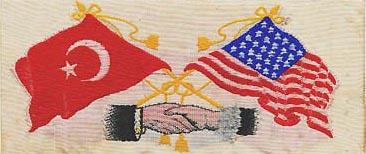
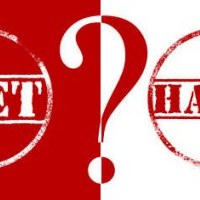
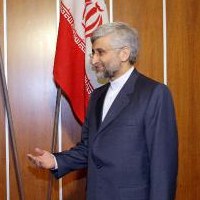

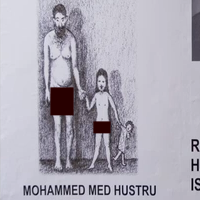
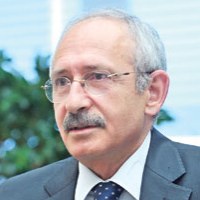




Turkish-US Relations in 2011 and Beyond: There May be Trouble …: Further Chinese exercises in Turkey … http://t.co/bCHpj5gB #asematy